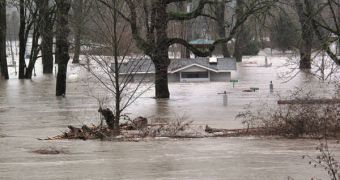A new report from the Stockholm-based Commission on Climate Change and Development (CCCD) has recently made it clear that some of the poorest nations in the world, which have already begun coming under the increased influence of global warming and climate change, urgently need up to $2 billion in compensations from the developed world, so as to be able to counteract the effects of nature. The report, which was submitted to the relevant United Nations forums on Thursday, states that most of the affected countries are on the African continent, with others located on islands in the Pacific.
“Billions of people are at risk. That is why adaptation is a key element in the negotiations for a new climate deal,” Ban Ki-moon, who is the secretary-general of the United Nations, told at a New York meeting. He argued that floods, droughts, wildfires and intense storms affected the poorest countries in the world most, and that the trend would only grow worse with each passing year, if measures to counteract global warming were not immediately taken.
He also added that most of these regions also lacked even the most basic defenses against the “agents” of climate change, such as early warning systems, disaster planning and response, as well as better management systems for crops and farmlands. Reuters informs that the CCCD report calls on developed nations to donate between $1 and $2 billion in immediate aids to these regions, in order to avoid unnecessary losses of human lives in the future.
Currently, the UN has some financial mechanisms in place to aid such countries, but Ki-moon says that they are very time-consuming, and also imply that a part of the circulated money is withheld in transaction costs. The Secretary-General adds that the only way to ensure a swift and efficient response to the challenges of climate change is to devise new mechanisms, which would basically see that the underdeveloped world receives money from multiple sources at the same time, with little to no funds being lost in the transfer process.
The statements come before the December UN summit, to be held in Copenhagen as part of a larger effort to address the most pressing environmental issues of the world. Last December, in Poznan, Poland, nations failed to reach any conclusive agreement on the text of the agreement that is to replace the Kyoto Protocol, which expires in 2012. Another document has to replace it, and nations disagree on what the contents of this paper should be. However, there are some good signs ahead, with top polluting countries such as China, India, the US and Australia saying that they will support the initiative.

 14 DAY TRIAL //
14 DAY TRIAL //